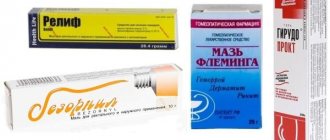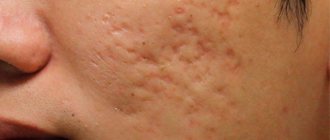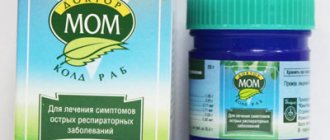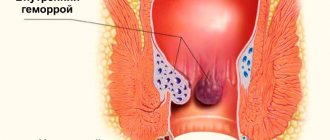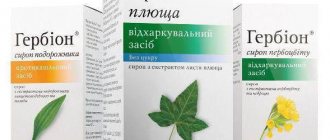The female body is designed in such a way that after conception its protective functions are significantly weakened in order to create normal conditions for the development of a new life. But this makes a woman very vulnerable to various diseases. Sometimes it is very difficult to protect yourself from infections and viruses, which often leads to the appearance of, at first glance, a very harmless illness - cough. Perhaps, outside of pregnancy, it is easily treated and does not cause much trouble. But what if during pregnancy it can harm the baby, and most medications cannot be taken? In this case, there are many folk remedies given to us by nature and a number of approved drugs that do not harm the fetus. How and with what to treat cough during pregnancy is the main topic of today’s article.
What are the dangers of a prolonged or dry cough for a mother?
Even slight coughing can cause tension in the abdominal cavity, and, accordingly, the uterus.
A prolonged dry cough can cause the uterus to become hypertonic. Such ailments often provoke a sharp rise in blood pressure, which has a bad effect on both the woman herself and her unborn child.
Why do coughing attacks occur?
A cough occurs when the mucous membranes lining the airways are irritated. This is a defensive reaction. Irritants include viruses, bacteria, dust, foreign bodies, and too dry air.
Coughing attacks often indicate the development of the disease. Expectant mothers should pay close attention to the manifestation. After fertilization, the body adapts to a new format of work. Now resources are aimed at preserving the fetus, providing the embryo with conditions for proper development. Immunity is reduced, the body is vulnerable to viruses and infections, which is why diseases appear. The main thing is to determine what disease the cough signals. The reason often lies in:
- cold;
- acute respiratory infections;
- ARVI;
- inflammation of the upper respiratory tract (sinusitis, pharyngitis);
- pneumonia;
- pneumonia;
- bronchitis;
- infectious diseases (measles, whooping cough);
- stomach infections.
It is easier to understand the cause of coughing attacks when the clinical picture is supplemented with specific symptoms. For example, fever, rashes, inflammation of the lymph nodes. Making diagnoses is the competence of a doctor. You should immediately contact the clinic, where the cause of the cough will be determined and appropriate treatment will be prescribed. Sometimes just an inspection and interview is not enough. To obtain an accurate diagnosis, you will have to undergo a series of examinations.
How to cure cough during early pregnancy with medication
In the early stages of pregnancy, all the internal organs of the baby are formed. Even the most harmless disease can negatively affect a child’s development. For this reason, it is worth starting treatment as soon as possible.
Early dry cough
Most medications are contraindicated in the early stages, as they can be harmful to the baby and mother. It is better to use preparations based on natural herbal ingredients.
Treatment of dry cough should include ventilation and humidification of the room, as well as maintaining a temperature of 18-20 degrees.
Wet cough 1st trimester
A wet cough in the early stages can sometimes cause a gag reflex or vomiting. If such a reaction is repeated constantly, it means that the body needs to be replenished with the necessary vitamins and minerals. Try to restore the correct water balance, but do not overdo it. Excessive fluid intake can lead to swelling, which is considered dangerous during pregnancy.
Herbal preparations for wet cough:
- Dr. Theis.
- Bronchiprest.
- Bronchicum.
- Linkas.
- Stodal.
If it is a normal wet cough, it should go away in about a week. But be careful, because if it is prolonged, it can become a prerequisite for such dangerous ailments as laryngitis, obstructive bronchitis or pneumonia.
Treatment methods if a severe cough was caused by ARVI or influenza
Among the approved medications that are intended for the treatment of cough during pregnancy, the following should be highlighted:
- based on dextromethorphan for dry cough (Akodin, Fervex, Grippostad Good Knight). The drugs inhibit the excitability of the cough center and effectively stop the cough reflex. They have a mild analgesic effect.
- Based on guaifenesin for wet coughs (Tussin, Coldrex Broncho, etc.), as well as drugs such as Bromhexine, Mucaltin, Doctor Mom, Gedelix, Herbion. The drugs help to liquefy and effectively remove bronchial secretions from the respiratory tract.
As for treatment with traditional methods, inhalations have gained wide popularity. To carry them out, solutions of chamomile, sage, soda, linden, and plantain are used. To prepare, boil half a liter of water and add 2 tablespoons to it. dry herbs or soda. Leave for 30 minutes, then heat (without boiling) and breathe in the healing vapors, covered with a towel.
Potato decoction is no less effective. To prepare it, you should boil 3-4 tubers and breathe in hot steam for 10-15 minutes. Inhalations help to effectively warm the respiratory tract and reduce the viscosity of sputum.
How to cure cough during late pregnancy
Most of the pregnancy is over and the most difficult period of this condition is over. Diseases at this period are considered not as dangerous as before. During this period, it is recommended to reduce the number of visits to crowded places, since the likelihood of contracting the virus becomes very high.
Wet cough in the second and third trimester
In the second part of pregnancy, the final stage of the formation of all organs and systems of the baby occurs; he prepares for independent life.
To combat a wet cough you can use:
- Overslept.
- Gerbion.
- Bronchipret.
- Stodal.
- Pulsatilla.
You should not self-medicate. Any drug must be prescribed by a doctor.
Dry cough in the second and third trimester
Treatment of nonproductive cough should be aimed at sputum discharge.
Medicines can help alleviate symptoms. Inhalations are considered an excellent treatment option (it is preferable to do this using nebulizers or ulizers rather than over a steaming hot vessel).
In the second and third trimester, you can do inhalations with saline solution and Borjomi mineral water, which are completely harmless for both the mother and the unborn child. You can do this procedure with a soda solution (dissolve 2 tablespoons of baking soda per liter of water).
The maximum number of procedures per day should be no more than 3, lasting 10-15 minutes.
https://youtu.be/5uCQhDHolq0
In the first trimester
In the first trimester, a pregnant woman's immune system has the hardest time. At the same time, during this period the formation of the main organs and systems of the fetus takes place. Most often, colds occur in pregnant women during this period. And allergic reactions, as another cause of cough, most often appear in the first trimester. There is a triple threat to the fetus:
- a cold threatens the normal development of the unborn child;
- an allergic reaction in the mother provides a prerequisite for an immune failure in the fetus;
- coughing overstrains the abdominal wall and leads to uterine hypertonicity.
A doctor who monitors a pregnant woman never prescribes potent drugs during this period. There are exceptions, of course, but only in emergency cases. Cough therapy should be gentle. Inhalations with herbal decoctions or essential oils, herbal decoctions orally are indicated. Compresses and wraps are allowed.
Herbal medicine in the first trimester uses chamomile, string, sage, mint and eucalyptus oils. Harmless, but effective and efficient cough recipes in the first trimester:
- Tea with raspberry jam. Dissolve a spoonful of raspberry jam in a glass of hot water, stir, drink and go to a warm bed.
- Milk with honey. Add two teaspoons of honey to a cup of warmed milk. You can drink several times a day.
- Milk with cocoa butter. A teaspoon of cocoa butter is added to a cup of heated milk and heated in a water bath. This harmless but effective remedy can be drunk up to 6 times a day.
One of the most effective methods is inhalation with medicinal herbs and essential oils. They use linden, chamomile, sage, and plantain. For wet coughs, yarrow, string and wild rosemary are used as a mild expectorant.
Of the essential oils, it is better to prefer mint and eucalyptus. If home remedies do not help, the doctor may prescribe herbal cough remedies: Mucaltin, Ambrobene, Herbion, Bromhexine.
What expectorants can you take: list of acceptable drugs
Although many women are afraid to take medications during pregnancy, there are a number of medications that can help cope with a dry or wet cough. They are completely harmless to the pregnant girl and to the fetus.
Pastilles
Most often, doctors prescribe lozenges that have a local systemic effect. Lollipops have a number of advantages over other methods of treatment:
- no contraindications during pregnancy;
- affordable price;
- sale without a prescription;
- difference in tastes;
- use regardless of meals.
Despite the abundance of flavors, pregnant women should give preference to lozenges with eucalyptus, chamomile, mint, and menthol. Treatment with lozenges should be in combination with other drugs, since they cannot completely rid the body of viruses and bacteria.
During pregnancy, you can use the following lozenges and lozenges:
- Bobs.
- Doctor Mom.
- Travisil.
- Dr. Theis.
Syrup
Liquid syrups quickly enter the stomach and are absorbed into the blood. They immediately act on the cause of the problem, therefore they reduce inflammation, remove swelling of the mucous membrane, and also suppress cough and promote sputum discharge.
Pregnant women can use the following syrups:
- Stodal;
- Doctor Mom;
- Lazolvan;
- Dr. Theis;
- Gerbion (in the 2nd and 3rd trimester);
- Althea syrup;
- Flavamed.
There are a number of syrups that are strictly contraindicated during pregnancy. These include drugs based on licorice, ACC and its analogues, as well as Ascoril, which negatively affects almost all internal organs.
Tea
Often in outpatient records you can see doctor’s recommendations about drinking plenty of fluids.
Indeed, during colds it is very important to drink plenty of fluids, thus preventing the occurrence of inflammation. Our great-grandmothers used raspberries to treat coughs and fevers. To brew tea, you need to collect raspberry branches and leaves (you can use either dry or fresh). Pour 2.5 liters of water into the kettle and bring to a boil, then throw in a handful of leaves and 4-5 raspberry twigs.
In addition to raspberry, when coughing you can drink teas from the following plants:
- linden (not often);
- marshmallow root;
- currant;
- pine buds;
- viburnum fruits.
Before drinking any tea, you should consult your doctor. Drink all drinks warm. Hot and cold teas can cause swelling in the throat. Sudden temperature changes exacerbate the problem.
Pills
To get rid of an infection in the body that provoked a cough, experts may recommend taking the following tablets:
- Mukaltin.
- Bonhipret.
- Ambroxol.
- Bioprix.
What cough tablets can pregnant women use?
The choice of medications for treating pregnant women is quite large. At first, it is better to use lozenges for resorption, which have minimal absorption into the systemic circulation and have a greater effect locally. In the second trimester, you can take mucolytics to more effectively expectorate sputum. At the end of pregnancy, most medications are allowed.
The presented cough tablets are suitable for pregnant women who do not suffer from complications during pregnancy. If there is a pathology accompanying cough, therapy can change dramatically, taking into account drug interactions.
Cough tablets for pregnant women in the 1st trimester
For a short period of time, you can take lozenges that contain eucalyptus, mint, and anise. The tablets reduce a sore throat, irritation of the mucous membrane of the respiratory tract, and have an antiseptic effect, which prevents the spread of the pathogen down the respiratory tract. Medicines are indicated for dry cough, sore throat, and sore throat.
Lozenges need to be dissolved in the mouth until completely dissolved after 3-4 hours several times a day. Be sure to use the medicine after meals and do not drink or eat for 30-40 minutes after the tablet has completely dissolved.
Approved cough lozenges during pregnancy:
- Adjisept consists of 2,4-dichlorobenzyl alcohol, amylmetacresol. At the pharmacy, the medicine is sold in various flavors. The product eliminates sore throat, sore throat, and has an antiseptic effect. Analogs: Vokasept, Hexoral Lorsept, Gorpils, Gripcold, Rinza Lorsept, Strepsils, Suprima-Lor, Trisils.
- Faringosept contains ambazone monohydrate. The medication causes the death of streptococci and staphylococci, which prevents the spread of infection through the respiratory tract. Analogs of the drug: Efizol, Farisil, Teraflu Lar.
- Sage in lozenges has an antiseptic, antioxidant effect and promotes rapid healing of inflamed mucous membranes. Analogues: Dr. Theiss with sage.
- Lyzobact contains lysozyme hydrochloride, pyridoxine hydrochloride. The antiseptic in the composition eliminates viruses, bacteria and fungi, and pyridoxine restores the mucous membrane of the upper respiratory tract. Analogues: Lizak.
The following tablets will help with wet cough in the early stages:
- Mucaltin consists of marshmallow root, which can be taken during pregnancy at any stage. The drug has a bronchosecretory and expectorant effect. Thick and viscous mucus becomes liquid and is easier to cough up. In addition, Mucaltin activates the movement of the cilia of the ciliated epithelium and promotes the regeneration of the mucous membrane. The drug should be taken 3-4 times a day, after diluting 1 tablet in a small amount of water. Analogs: Alteyka (chewable tablets), Mucaltin with vitamin C, Muko-Vert.
- Dr. Theiss Anise Oil Capsules contain essential anise oil. The plant extract has an expectorant, antispasmodic, and antiseptic effect. Take 1 capsule three times a day with 250 ml of clean water.
- Prospan contains ivy extract. Pharmacies have regular and effervescent tablets. The product has mucolytic, antispasmodic and expectorant effects. Take 1 tablet in the morning and half in the evening. Effervescent ones are pre-dissolved in water. Analogues: Pluforkaf capsules, Prospan lozenges, Bronchostop.
Important! All of the listed drugs are allowed to be taken throughout pregnancy, but only with the permission of the attending physician.
In the 2nd trimester
This period of pregnancy is considered the calmest. In addition to lozenges, coughs can be treated with expectorant tablets and mucolytics.
The following drugs are allowed:
- Doctor Mom contains menthol, licorice, ginger. There are lollipops with different flavors: lemon, pineapple, fruit, raspberry, orange. The medication relieves inflammation and causes expectoration of sputum. Used for dry and wet cough. Analogues: Dr. Theiss.
- Pectusin with menthol and eucalyptus oil. The product has an irritating effect, reduces dry cough, relieves inflammation, and eliminates pathogenic microorganisms. The medicine is used 1 tablet up to 4 times a day, dissolving under the tongue. Analogues: Eucalyptus-M.
- Ambroxol causes an increase in the synthesis of the liquid part of sputum, stimulates the secretion of surfactant in the lungs, restores the mucous membrane, and activates the flickering of cilia. The drug is taken for difficult to cough up sputum, 1 tablet three times a day. Analogs: Lazolvan, Ambrol Sr, Ambrobene, Ambronol, Ambrosan, Ambrotard, Bronchoval, Mukoangin, Mukolvan, Flavamed.
Important! Pregnant women should take cough tablets strictly according to the instructions, without exceeding the dosage.
In the 3rd trimester
The last period of pregnancy is no less important than the first, but the child is already fully formed, so the list of approved drugs is increasing.
You can treat with the following means:
- Acetylcysteine is a mucolytic, expectorant drug. The substance thins mucus and stimulates its complete clearance from the respiratory tract. The drug also protects cells from free radicals, which has an antioxidant effect. You need to take the drug 200 mg three times a day. Analogues: Asibrox, Atsestad, ACC, Acetal, Fluimucil.
- In addition to all the effects of acetylcysteine, carbocysteine reduces the number of goblet secretory cells, which accordingly reduces the amount of sputum synthesized. It is recommended to take the product 2 capsules three times a day. Analogues: Bronchomucin, Mucolic, Rinatiol.
- Bromhexine is also a mucolytic. The drug is prescribed 1 tablet three times a day. Analogues: Solvin, Bronchohex.
- Erdomed contains erdosteine, which is a mucolytic. The drug is used at a dose of 150 mg twice a day. Analogues: Mucitus, Ermucin.
Treatment of cough during pregnancy with folk remedies
Treatment with traditional methods must necessarily be included in the complex of basic therapy for cough during pregnancy. You should not self-medicate or experiment if you are pregnant. This can be disastrous for both you and the baby.
Traditional recipes for coughing up wet coughs
Goat fat coats and prevents coughing, which irritates the mucous membranes. To take it internally, melt a teaspoon of loy, pour it into a glass of warm milk and add a tablespoon of honey. This drink should be taken before bed, wrapped in a blanket.
Black radish juice was famous for its medicinal properties back in the Middle Ages. To prepare it, you need to take a root vegetable and make a hole in it, into which you pour honey. Leave the radish overnight, strain the juice through cheesecloth and take a tablespoon three times a day.
Natural mucolytic agents in decoctions: recipes
A decoction of sage herb with milk helps fight coughs and has a calming effect.
To do this, brew a tablespoon of dry sage in half a liter of milk. Drink one tablespoon of this decoction at night. In equal quantities (to make a total of 1.5 tablespoons), take anise, flax and thyme and pour a glass of chilled boiled water, leave for several hours. Then the broth needs to be boiled and strained. Drink it three times a day, a third of a glass.
Be sure to consult your doctor before taking sage!
What pills are strictly prohibited?
There are medications that are not allowed to be taken during pregnancy. They can be found in the FDA classification of medications. All products containing codeine are strictly prohibited. The drug is used for dry cough with an antitussive effect. Examples of drugs: Codepsin, Kodarin, Codeterp, Tercodin, Codesan, Tedein.
You should also not be treated with combination drugs that contain three medications: salbutamol, bromhexine, guaifenesin. Names: Askoril, Joset, Rinzakoff.
You cannot use tablets with thermopsis, such as Antitusin, Codesan, cough tablets.
Important! Whether pregnant women can take cough tablets of a certain pharmacological group or not is decided by the doctor based on his experience and knowledge.
Adviсe
In addition to the prescribed therapy, it is important to follow tips that will help you quickly cope with an illness such as cough:
- humidify the air;
- avoid sudden changes in temperature;
- cleanse the bronchi by coughing regularly.
When coughing, you should raise your hands up, this opens the bronchi, and the accumulated clot of mucus is better cleared.
Cough during pregnancy is harmful if not treated on time. Every woman should remember the irreversible consequences of her decisions. Therefore, all treatment must be agreed with a doctor. Experiments with self-medication should be left for another time.
https://youtu.be/Fz-eLO3VVp4
Prevention of cough during pregnancy
To prevent coughing while pregnant, a pregnant woman is advised to follow a few simple recommendations:
- If possible, avoid public places and limit communication with sick people.
- Maintain hygiene: after walking, wash your hands, rinse your nose, gargle with boiled water or herbal infusions.
- Ventilate the room, humidify the air.
- Be attentive to your health and avoid hypothermia or overheating, and also promptly seek medical help if the first symptoms of the disease appear.
Inhalations
Inhalation is one of the safest methods of cough control. It is better to use a special device for such purposes - a nebulizer. It sprays the contents evenly. The main component when using nebulizers is saline solution.
It is absolutely safe for both mother and baby.
Another well-known folk method of treatment is the usual “star”. This medication has no contraindications. However, the drug can cause allergies. Therefore, before applying the “star”, you should perform a test. This inhalation method helps to get rid of not only cough, but also nasal congestion.
In addition to all of the above, you can find a special product on sale - a pencil for inhalation.
However, not all of them are approved for use during pregnancy. Therefore, before purchasing, you must carefully study the instructions. Another well-known folk method of inhalation is inhaling the steam emanating from freshly boiled potatoes. Using this method is absolutely safe. But you should take care in advance that the girl does not accidentally get burned.
Why is a cough dangerous in the 3rd trimester?
The main danger is often not the cough, but its cause. Cough itself is not a disease; it is the body’s protective reaction to an infectious disease.
During a productive cough, the upper and lower respiratory tracts are cleared, and waste products of bacteria and viruses are released with sputum. A wet cough is relieved by drinking plenty of fluids and goes away fairly quickly.
A dry cough is more disturbing and is accompanied by soreness and chest pain. This is a reflex reaction to irritation of the ENT organs. It does not bring relief, interferes with sleep and tires the pregnant woman. A dry cough can also be dangerous for your baby.
If the cough is caused by a virus or bacterial infection, then the risk of intrauterine infection of the fetus cannot be ruled out. For a fragile child's body, infection in the third trimester poses a greater danger than for the mother.
The unpleasant consequences of a dry, lingering cough during pregnancy in the 3rd trimester are:
- Fetal hypoxia. A strong, hysterical cough increases the tone of the uterus. An unpleasant consequence of increased tone is fetal hypoxia, a lack of oxygen in the child’s blood.
- Premature birth. A constant and significant increase in tone provokes contractions, and premature birth can occur. By the middle of the third trimester, the baby is already well developed and can be born completely healthy, but it is better to carry the child to term.
- Bleeding. If there is an offer of placenta, coughing, like severe physical exertion, can cause dangerous bleeding. It is in the 3rd trimester that the risk of such bleeding increases, since the walls of the uterus are already greatly stretched. Cough poses a similar danger with low placentation.
The gynecologist’s task is to explain to the patient in a timely manner why a cough is dangerous in the 3rd trimester, and to refer her to a therapist to determine the cause and undergo treatment.
Causes of cough
The most common cause of cough is diseases of the upper and lower respiratory tract of various etiologies. Correct diagnosis will help determine the cause of cough during pregnancy in the 3rd trimester, how to treat it and what to avoid.
Mild forms of ARVI and colds pass without consequences for the fetus. An increase in the mother's body temperature does not harm the baby, nor does a runny nose or cough. For a pregnant woman, it is important to keep bed and drink rest, and also consult a doctor to monitor the course of the disease.
If you hope that the cold will go away “on your feet” and do not follow the treatment of cough during pregnancy according to the instructions of health workers, then complications may arise. Inflammation of the pharynx and trachea (laryngitis and tracheitis) lasts up to three weeks, is more difficult to treat and causes severe coughing attacks, including at night.
Some viral diseases that cause coughing can be extremely harmful to the baby. Among seasonal diseases, the most dangerous is influenza. It is accompanied by severe fever, high temperature, and headaches.
Important! If the disease develops rapidly, accompanied by a rise in body temperature above 38°C and a severe headache, it could be the flu! It is urgent to call an ambulance.
Bacterial diseases also cause coughing. Bronchitis and pneumonia are common and dangerous complications of a cold. Treatment of such diseases cannot be accomplished without the use of antibiotics. In serious cases, hospital treatment is recommended to ensure round-the-clock monitoring of the condition of mother and child.
Important! Infections are not always severe for the mother, but bacterial activity poses a danger to the child! Visit your doctor.
If there are no other respiratory symptoms and the cough continues, your doctor will suspect an allergic reaction. It is caused by household allergens (animal hair, dust, feathers, mold), chemical (washing powder, cosmetics) or food. In this case, after completely limiting contact with the allergen, the cough quickly goes away.
Cough and condition of a pregnant woman
Fighting the disease poses a serious burden on the body. In the 3rd trimester of pregnancy, the expectant mother has already spent a lot of energy, and her constantly growing belly makes her increasingly tired by the end of the day. In this state, even a mild illness is difficult to bear and very tiring.
Unnecessary worries can negatively affect the child’s development, so it is better to start treatment in a timely manner.
Prevention of cough during pregnancy
The main role in preventing influenza infection is given to vaccination. The results of clinical studies have proven the complete safety of modern influenza vaccines, since they are devoid of embryotoxic and teratogenic effects.
According to statistics, placental insufficiency is much more common in women who have not received influenza vaccinations than in those who have been vaccinated (28% and 3.5%, respectively).
To prevent diseases that most often cause coughing, you must adhere to the following recommendations:
- avoid contact with patients with any infectious diseases;
- during periods of high incidence of influenza and ARVI, try not to visit places with large crowds of people (cinemas, theaters, shopping and entertainment complexes);
- to prevent infection with viral infections, before leaving home, lubricate the nasal cavity with oxolinic ointment or put on a medical mask;
- after returning home, wash your hands thoroughly under running water and soap and rinse your nasal cavity and throat with warm saline;
- carry out wet cleaning daily and ventilate living rooms several times a day;
- avoid long-distance travel.
Prohibited methods of treatment
The expectant mother should be treated with caution. Medicines - only as prescribed, and not on the advice of a friend. Not all natural herbal mucolytics are suitable for pregnant women, so a medical consultation is required before using them. For example, coltsfoot causes mutations in the fetus, oregano provokes self-abortion, and aloe stimulates labor. Prohibited foods also include anise, St. John's wort, and sweet clover. You cannot use homemade decoctions/infusions from these medicinal herbs, and you are prohibited from drinking pharmacy syrups based on them. A number of procedures are prohibited:
- banks;
- mustard plasters;
- foot baths;
- electrotherapy.
What is the danger?
A cough indicates that the infection has affected the upper or lower respiratory tract in the body. The symptom can develop due to disruption of the digestive system, allergies, or smoking. The cough reflex in the 2nd trimester of pregnancy torments not only the expectant mother. It affects the formation of all vital systems in the fetus.
- The formation of the placenta during pregnancy in the 2nd trimester is complete, but viruses and bacteria can penetrate through it and infect the fetus. The disease will have to be treated in a newborn.
- 2nd trimester, 14-18 weeks at this time the child’s skeleton is rapidly forming. The endocrine system begins to form: adrenal glands, pituitary gland, thyroid, pancreas. The development of the nervous system occurs: the convolutions of the brain. Cough provokes uterine spasms. In this case, the fetus receives little oxygen and hypoxia develops. Oxygen starvation at this time will lead to the development of pathology in the endocrine and nervous system of the fetus.
- 19-23 weeks of pregnancy are the development of eggs in girls. If the fetus receives insufficient nutrition and oxygen, there will be a disruption in the development of the genital organs. This can affect the future life of the girl and boy, possibly infertility.
- 2nd trimester 23-24 weeks – development of the child’s respiratory system. Infection and fetal hypoxia will negatively affect the formation of the baby's respiratory organs.
- 25-27 weeks – the formation of the baby’s immunity occurs. Hypoxia, malnutrition and fetal infections will prevent the baby’s immune system from developing correctly. The baby may have low weight and low muscle tone.
- The 2nd trimester is the development of the organs of vision, hearing, and vestibular apparatus. If the fetus is infected and lacks oxygen and nutrition, the organs will not be able to function well enough. There is a risk that the child will develop muteness, deafness or blindness during the perinatal period.
- A severe dry cough during pregnancy in the 2nd trimester can cause premature birth. The fetus may stop developing. There is a high threat to the child’s life, because his vital systems are not yet well developed.
If you have a strong cough, you need to reduce your cough reflex. Uterine spasms should not be allowed. It is necessary to prevent the development of fetal hypoxia and lack of nutrients. The doctor may prescribe inhalations with a nebulizer, compresses, and rinses for a dry cough. If this treatment is ineffective, the woman will be prescribed medication therapy.
Treatment of severe cough
Therapy must be comprehensive and timely to prevent the occurrence of dangerous complications and the development of bronchial asthma. Treatment of severe cough during pregnancy in the 2nd trimester is carried out using inhalation with a nebulizer. In addition, mixtures and tablets with expectorant properties are required. Drugs that block cough receptors help to cope well with the problem.
If a cough torments a woman for a long time, then it is imperative to take special vitamins for pregnant women, as well as general tonics. If the infection is in the respiratory system, then a safe rinse is selected. To do this, you can use a soda solution or a decoction of dried chamomile.
For the treatment of dry cough during pregnancy in the 2nd trimester, drugs such as Bronchicum, Libexin, and Sinekod are well suited. Additionally, you can use the vitamin complexes “Elevit”, “Vitrum Prenatal”, “Pregnavit”.
General recommendations for nutrition during illness
If a cough occurs during pregnancy, you should review your diet. It is worth giving up foods that irritate the mucous membrane (salty, spicy, spicy). To increase immunity, eliminate cough and signs of colds, it is recommended to consume the following products:
- Honey. Dissolve 1 tsp before meals.
- Onion and garlic. Eat fresh. Garlic should be consumed in moderation, as it affects the tone of the uterus.
- Milk. Drink warm milk at night to soothe irritated mucous membranes.
- Compotes, tea. Drinking plenty of fluids helps eliminate toxins.
- Tea with honey. Soothes the throat and helps prevent coughing at night.
- Honey and radish juice in a ratio of 1:2. Drink 2 tbsp. three times a day.
However, you need to remember that honey can be an allergen. If there was no allergy before pregnancy, you should still first make sure that there is no allergic reaction (see also: anti-allergy medications during pregnancy).
https://youtu.be/oCbWI6—HGM
Physiotherapy treatment table for cough
Physiotherapy refers to gentle methods of treating cough in pregnant women. But, nevertheless, not all of them can be used during pregnancy. The optimal methods of physiotherapy for expectant mothers are given in the table.
| Physiotherapy form | Rules of application |
| Gargling | Rinsing helps suppress pathogenic bacteria and speed up the healing process. You need to gargle with a solution that is comfortable in temperature. The procedure should be carried out an hour after meals 2-3 times a day. You can use solutions (cool the broth after preparation): – baking soda 0.5 tbsp. + salt 0.5 tbsp. + 200 ml water; – dried linden inflorescences 1 tbsp. + 200 ml boiling water; – chamomile 1 tbsp. + 200 ml water. |
| Inhalation with a nebulizer | For inhalation you will need an ultrasonic or compressor nebulizer. It turns the inhalation solution into an aerosol cloud that must be inhaled for 5-10 minutes. To moisturize the mucous membrane and prevent colds, you can use saline solution. All other medicinal solutions can only be used as prescribed by a doctor. |
| Steam inhalations | For these inhalations, a special vessel is used - a steam-moist inhaler. A hot decoction is poured into it to inhale steam: – sage herbs 1 tbsp. + 1 tbsp. boiling water; – eucalyptus leaves 1 tbsp. + 0.5 l of boiling water; – baking soda 3 tbsp. + 1 liter of boiling water. The inhalation procedure lasts 8-10 minutes. Inhalation of hot steam should be carried out only if there is no elevated body temperature. |
On a note! Physiotherapy treatment methods have a number of advantages - they are effective, help transform a dry, strong cough into a productive one, are drug-free, and are safe for the mother and the pregnant child.
How to treat a cough in a pregnant woman in the 2nd trimester
During pregnancy, only drugs that have been proven effective and safe for fetal development can be used to treat cough. Therefore, cough therapy, regardless of the cause that caused it, should be prescribed only by a doctor.
To treat dry cough in the second trimester of pregnancy, your doctor may prescribe the following medications:
| Herbal medicines | Synthetic drugs | |
| With clinically proven safety for fetal development | Marshmallow root syrup, Mucaltin | Coldrex Knight (contains paracetamol, so the use of this drug is justified only when body temperature rises to 38 ° C or higher) |
| Use is permitted only if the expected effect of treatment significantly exceeds the potential risk to the fetus | Gedelix, Bronchicum | Bromhexine, Falimint, Stoptussin, Libexin |
The following drugs are used to treat wet cough:
| Herbal medicines | Synthetic drugs | |
| With clinically proven safety for fetal development | Syrup Stoptussin-phyto, Doctor Theis, Prospan | Tussin |
| Use is permitted only if the expected effect of treatment significantly exceeds the potential risk to the fetus | Herbion, Bronchicum, Linkas | Fluifort, Ambrobene |
There are a number of medications that are strictly contraindicated during pregnancy:
- Codelac;
- Codterpin,
- Travesil;
- Bronholitin;
- Thermopsis;
- ACC.
Treatment of dry cough
A dry cough in a pregnant woman indicates the presence of some irritating factors. The mechanism of the disease in this case is aimed at getting rid of its cause. Therefore, the doctor’s main task before prescribing treatment is to identify the source of the pathology.
https://youtu.be/rn0SR7aFbAU
Among the most common reasons are:
- nicotine addiction;
- an allergic reaction that provokes rhinitis;
- colds, including ARVI;
- emotional stress;
- pathologies of the cardiovascular system.
In addition, it is necessary to conduct an experiment by changing the environment for several hours.
Perhaps the room in which a pregnant woman is located is not subject to regular wet cleaning. As a result, dust accumulates in the apartment and settles in the respiratory system. Another factor influencing the presence of a dry cough is too low air humidity.
This problem can be easily solved by purchasing a special device.
Pregnant women who have a dry cough are usually not prescribed antibiotics. Most often, all the composition of the drugs is based on homeopathy and is approved for infants. The mechanism of action of these medications is to suppress cough until sputum begins to form.
Herbion plantain syrup
The principle of action of this product is reduced to the formation of liquid sputum. After the patient gets rid of it naturally, the cough should go away. Combining the drug with other medications is not recommended. After all, there are many cough remedies that block the removal of phlegm, while “Gerbion,” on the contrary, increases the amount of mucus in the body.
Therefore, their combination can lead to serious complications.
Cough medicine for pregnant women has many benefits. One of them is the absence of bitterness in taste. In addition, the drug is available in the form of syrup. Therefore, a pregnant woman, even during toxicosis, can easily use Herbion.
Cough medicine for pregnant women must have an exclusively natural composition
It is important to consider that the instructions for the syrup indicate that the drug should be used with caution during pregnancy. After all, like many other drugs, “Gerbion” has not been tested among girls who are pregnant. Concomitant effects of using the drug are a general increase in immunity and the removal of harmful toxic substances from the body.
The product is produced in Slovenia. The average cost is 300 rubles.
Intussin
The main characteristic feature of this drug is its mechanism of action. It consists of eliminating a dry cough and replacing it with a wet one. The country of origin is Slovenia. The medicine is available in the form of tablets, which you can not drink with water, but simply dissolve.
This is very convenient if a pregnant woman leads an active lifestyle or is on the road. Tablets should not be taken during the first trimester. The cost of the drug is about 100 rubles.
Ambroxol
Cough medicine is produced in Belarus, so the product is considered budgetary. The average cost of a package is 50 rubles. The syrup is packaged in dark plastic bottles. The drug does not contain medicinal plants; its main component is ambroxol hydrochloride.
https://youtu.be/Vod6TMgE-8o
The medicine only affects the respiratory system; Ambroxol does not treat colds. For pregnant women, the drug is suitable only in the 2nd and 3rd trimesters. According to the instructions, use should be with caution. Patients suffering from stomach or duodenal ulcers should not drink the syrup.
Reviews
It is very important to choose the right effective cough medications during pregnancy in the 2nd trimester. The Adjisept and Faringosept lozenges received positive reviews. When using them, the state of health improves very quickly, no side effects are observed.
Some people say that the drug Stodal is quite effective. It effectively helps cope with dry and wet cough.
In addition, many say that folk remedies help cope well with the problem. In particular, warm milk with honey helps get rid of cough. Decoctions and infusions of medicinal herbs can overcome a painful cough.
